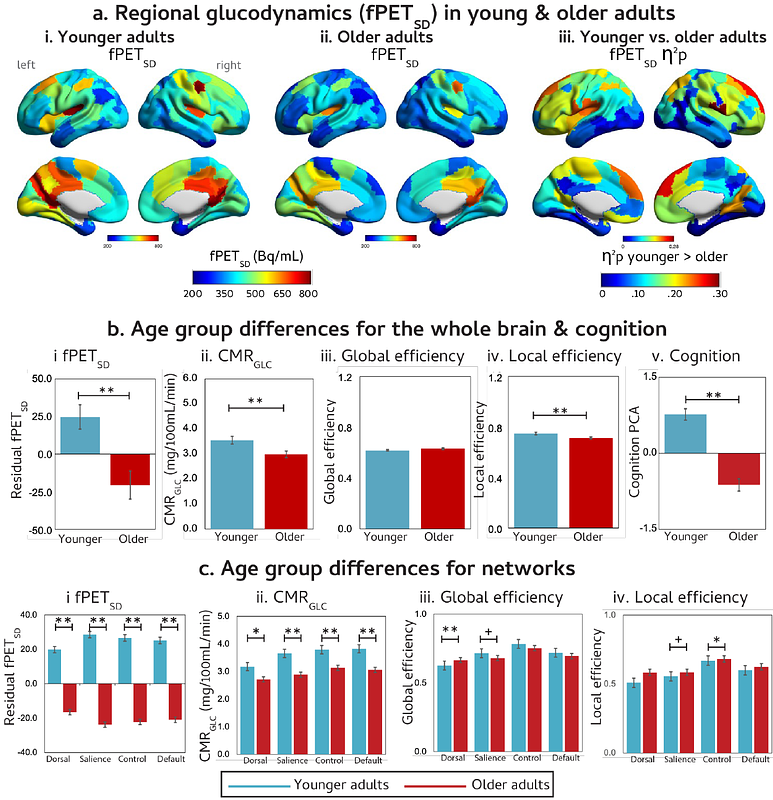Brain glucodynamic variability is an essential feature of the metabolism-cognition relationship

Brain glucodynamic variability is an essential feature of the metabolism-cognition relationship
Deery, H.; Liang, E.; Moran, C.; Egan, G. F.; Jamadar, S. D.
AbstractVariability ensures that complex biological systems, including the brain, are capable of responding to changing environmental demands. While the importance of neural variability in electrophysiological and haemodynamic aspects of brain activity is beginning to be understood, little is known about how variability in molecular activity influences brain function. Here we examine how temporal variability in glucodynamics, or time-varying glucose use, is related to cognition in 35 younger and 43 older adults. Stationary metabolic rates of glucose were not directly associated with cognition. Rather, higher glucodynamic variability, and its coherence into metabolic networks, was associated with better cognitive performance. Lower glucodynamic variability in ageing was associated with altered metabolic network efficiency and reduced cognitive performance. Our results demonstrate for the first time that variability in cerebral glucose metabolism is biologically and functionally relevant to cognition and the network architecture of the brain. Cognition is influenced by time-varying glucose metabolism and its coherent fluctuations in metabolic networks. A loss of glucodynamics in ageing reduces the efficiency of the metabolic connectome and contributes to reduced cognitive performance. The study of glucodynamics significantly advances our understanding of metabolic brain changes in health, ageing and disease.